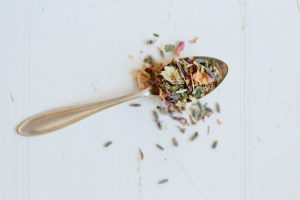The Naturopathic Co.

You're using an outdated browser. Please upgrade your browser to improve your experience.
Are you tired of feeling less than your best because you’re sensitive to foods? Maybe you can’t quite pinpoint which foods set you off, but you know that after you eat you notice symptoms…
When gut health is poor, then some food sensitivities start to present.
Bloating, constipation, diarrhea, nausea, IBS
Brain fog
Fatigue
Muscles aches and pains
Headaches and migraines
Hives and skin rashes
Asthma and respiratory symptoms
Essentially it’s gut damage and an insufficiency in healthy bacteria / or overgrowth of unhealthy bacteria that creates an unhealthy gut environment. Leaky gut triggers an inflammatory response when food particles, bacteria, and endotoxins leak through the tight junctions in the gut wall and cause inflammation.
Overgrowth of pathogenic bacteria, yeasts, and parasites that adhere to the gut wall and cause damage.
Other things cause damage to the gut wall too: inflammatory foods, medications, stress, undigested foods/lack of digestive enzymes, chemicals, food sensitivities which are not identified or addressed, coeliac.
When there is damage to the gut wall, symptoms start to show after you eat specific foods. Usually the longer you leave gut damage and the worse it gets, the more sensitivities you have.
Dairy
Gluten
Histamines
FODMAPS
Fructose
Avoiding dietary triggers can offer relief, however an overly restrictive diet can produce further complications to digestive health long-term. Many of the commonly eliminated foods in these kinds of diets are important to maintain healthy diversity of the gut microbiome (particularly FODMAPS foods).
Therefore, long term dietary restrictions can end up worsening gut health for the patient. Elimination should only be the first step to a broader treatment for food allergies.
The biggest mistake I see is that people just remove the trigger foods, but fail to address the underlying issue.
The best way to heal from these sensitivities for good, is to remove the trigger for a short-medium term AND follow a healing protocol and anti-inflammatory diet.
Identify what types of pathogenic bacteria, parasites, and yeast are inside your gut and correct the imbalance. (You can do this via a stool test, book with us and we’ll talk you through the steps).
Probiotic therapy is effective in restoring balance to the microbiome. Strain-specific probiotic treatment is most effective, so find out which strains of healthy bacteria you are low in.
Taking enzymes if you are low; specifically digestive enzymes including amylase, protease, lipase.
Incorporate foods that are healing for the gut wall such as glutamine, slippery elm bark, curcumin, zinc, collagen, mastic gum, aloe vera, omega 3s, bone broth, and herbal medicines.
Addressing microbial disturbance, correcting digestive function of enzyme secretion, restoring diversity in beneficial gut bacteria, and healing the gut lining are all important factors in addressing food sensitivities.
If you experience food sensitivities, and would like to find out more, make a time to speak to us and we can identify your food triggers, help to identify your underlying gut issues, and get you on track with gut healing.

Yvette is a qualified Naturopath and Nutritionist, MINDD Practitioner, member of the Naturopaths and Herbalists Association of Australia.
Yvette specialises in the treatment of gut health and digestive complaints, skin issues, mood disorders, hormonal concerns, fatigue, and more.
Yvette sees patients Australia-wide.
Comments are closed.